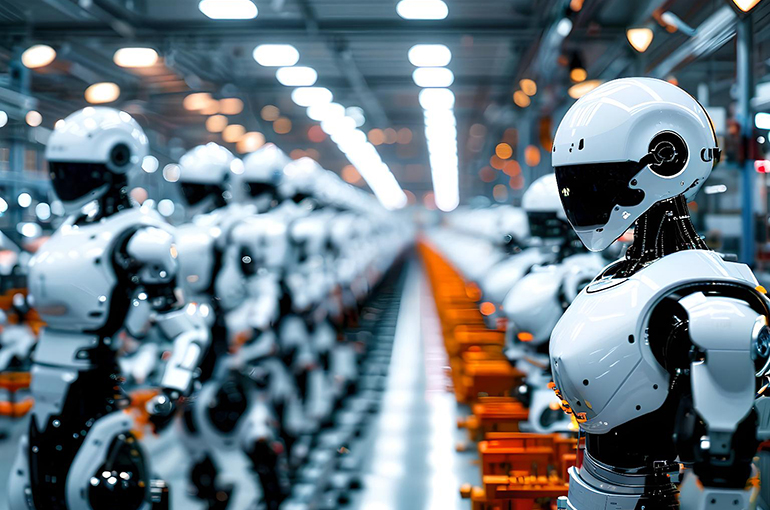 Unitree, Other Big Chinese Robotics Firms See Overseas Revenue Make Up Half of Total Income
Unitree, Other Big Chinese Robotics Firms See Overseas Revenue Make Up Half of Total Income(Yicai) Aug. 28 -- Several leading Chinese robotics companies, including Unitree Robotics and Keenon Robotics, have seen the share of overseas income jump to 50 percent of their total, with core part suppliers leveraging price and supply chain advantages to expand internationally.
However, many firms and experts told Yicai that security and privacy vulnerabilities have become an "invisible barrier" for some firms expanding overseas. Global markets have high data security and operational reliability requirements for robots entering shopping malls, restaurants, and homes, they added.
Unitree Robotics started its overseas business in 2018, with half of its income coming from international markets over the past few years, Wang Xingxing, founder of the Hangzhou-based company, said to Yicai previously.
"Chinese service robots have a great price advantage overseas, so expanding with androids is an inevitable choice," Li Tong, chief executive of Keenon Robotics, said to Yicai. "We chose Japan as our first stop, with the company's overseas revenue accounting for half the total."
The robotics sector is still in an exploratory phase regarding hardware, software, ethics, and business models, Liu Zhiqiang, a partner at computer hardware products maker Digital China Shenzhen, told Yicai. Staying connected to top global tech and integrating into the international business ecosystem are key focuses, Liu pointed out.
"Overseas developer communities and expert ecosystems can help us gain inspiration for more mature toolchains and iteration ideas," Liu said.
Although six-axis force sensor manufacturer BluePoint Touch started its overseas business about half a year later than its domestic operations, such revenue accounts for around 20 percent of its total, founder Liu Wuyue told Yicai. "Domestic products still have an advantage in cost-performance and iteration speed, which is also a key to entering the overseas market."
Chinese manufacturers have a significant cost advantage in core components such as reducers and motors, with their prices being only half or even lower than similar overseas products, an industry insider said to Yicai. However, domestic suppliers lag behind Tesla's Optimus and artificial intelligence robotics firm Figure internationally, the person said.
Once robots truly enter overseas end markets, customers will verify their safety, privacy, and application standards layer-by-layer, according to Keenon 's Li.
"There is often lots of data interaction between the robot terminal and the server, and potential threats from backdoor programs and malicious traffic can spread via this link," Yu Yueheng, research and development and technical manager of China Entercom, told Yicai. Robots should have a "safety valve" before entering overseas markets, he stressed.
The time it takes to find a vulnerability is crucial, noted Ye Hanzhong, chief technology officer of CITIC Telecom CPC. "In the past, some companies' systems had vulnerabilities that were only discovered quite some time after being breached, sometimes taking two or three months, with all the network data getting stolen by the time they were found."
Using AI penetration testing before products leave the factory could be an effective measure, according to Ye. "This allows for pre-verification of potential vulnerabilities and identifies anomalies through traffic behavior analysis during operations."
China Enterprise Communications has developed AI Pentest, an AI penetration testing platform that makes vulnerability scanning and risk assessment before any equipment leaves the plant or systems go live, Yu pointed out.
Security and compliance are becoming the basic threshold for Chinese robots to win global trust, Liu said. "More third-party institutions may emerge in the supply chain to provide compliance and security guarantees for robotics companies going global, an inevitable trend for the industry's healthy development."
Editor: Martin Kadiev